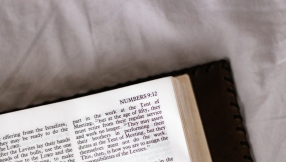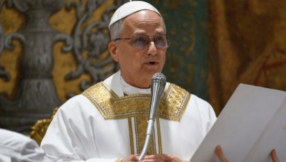
Pornography has affected the lives of men, women and children and has left them in need of deep healing from depression, betrayal and trauma, a conference has heard.
The P Word Conference, hosted online this week by Naked Truth Project, brought together 30 expert therapists, coaches and church leaders to equip viewers with knowledge, advice and stories on how to tackle pornography in their churches and communities.
Ian Henderson, founder and CEO of Naked Truth Project, Henderson called pornography a "thief" that is "killing, stealing and destroying families, churches and communities".
He continued: "The enemy that lies behind pornography is the very thief that Jesus talks about.
"We know that Jesus brings life and life to the full.
"As a Church, part of what we need to do is to say: no, you are not having my church, you are not having my family."
The Naked Truth Project exists to "open eyes and free lives from the damaging impact of pornography", and work with the Church in achieving this aim.
Statistics shared by the organisation state that in the US, 93% of pastors believe pornography to be a bigger issue than ever before in their congregations.
Henderson said churches often struggle to speak about this subject. Reflecting on why churches are not discussing pornography more openly is because it "feels dirty".
"It's actually a difficult thing for us to talk about," he said.
He continued: "Pornography can make a mess of people's lives. It can cause pain, addiction and trauma. When we see mess, God sees more. I think that is so important," he said.
Henderson went on to share that the inspiration to set up Naked Truth Project partly came from scripture, particularly chapter 37 from the book of Ezekiel.
"In a vision, Ezekiel was placed by God in a valley strewn with bones. Everywhere around him is dry bones, symbols of death and defeat," he said.
The bones in the scripture serve as a metaphor for the people of Israel who at this point in time lack hope and are facing defeat and loss, he said.
Henderson emphasised how God sent Ezekiel to the bones even though it made him feel "unclean and disturbed".
He continued, "Ezekiel cared about his nation, cared about the brokenness, the defeat, the sin, the bad choices and mistakes."
Like the bones in Ezekiel chapter 37, individuals who have become addicted to pornography, or have been affected by it in some way see no future for themselves or their relationships. However with the breath of God, the bones are revived.
"The bones coming together was a process. Sometimes when we are hoping and believing for something better for our people, we forget that it is a process - certainly when it comes to recovery," said Henderson.
He continued: "Throughout the Bible, breath is a metaphor and symbol for God's Spirit in us. Whether that is God breathing in Adam and Eve in Genesis or Jesus himself.
"Part of what we want to be doing as a Church is to acknowledge the restoration, healing and recovery that our people need, but also to continue to believe for healing."













